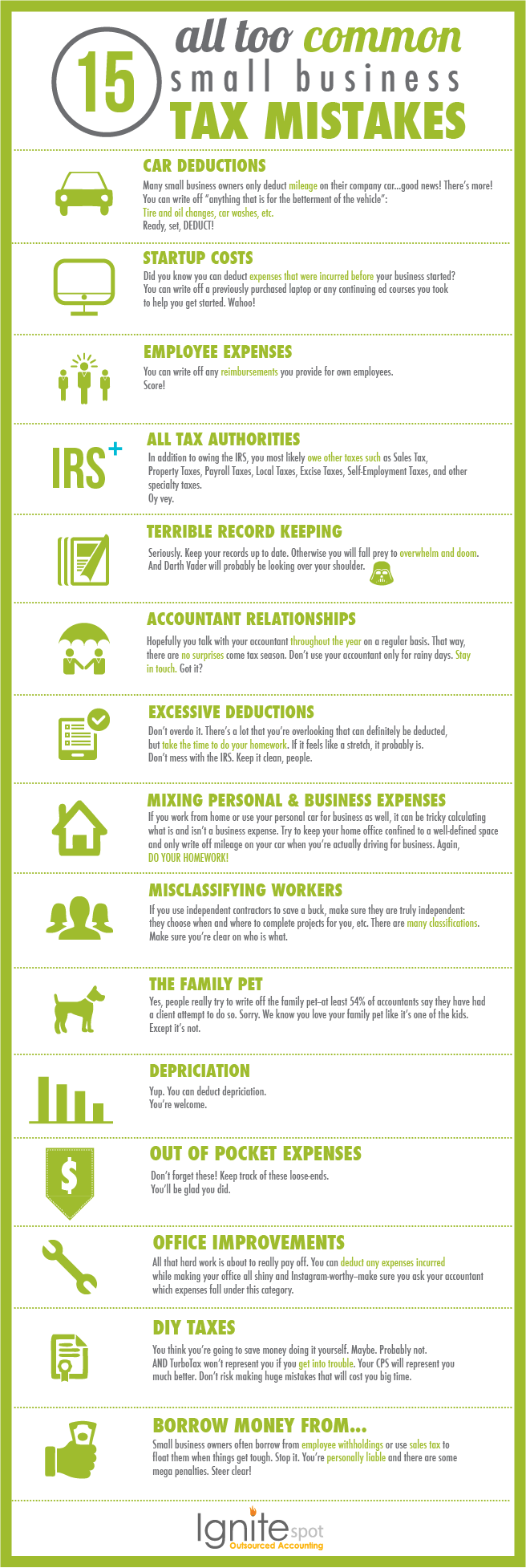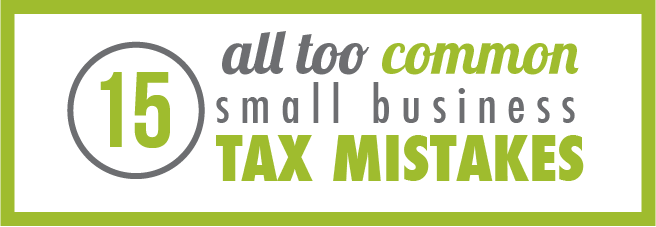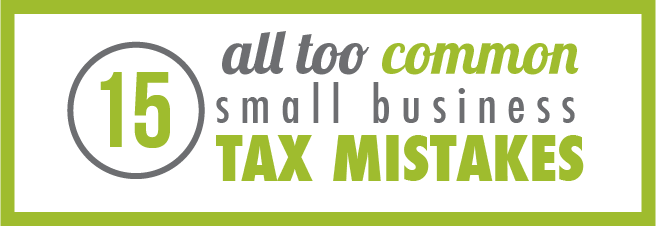You're bound to make mistakes while doing your 2014 small business tax preparation, but hopefully this list will keep you on your toes so that you can successfully file taxes that are squeaky clean.
If you're looking for more tax help make sure to look for our upcoming Tax Tips 2014 video series beginning the first week of November 2014.

Small Business Tax Tips from 5 Experts
"When you earn income from an employer, half of your payroll taxes (more than 7%) are paid out by the employer. Contractors are required to remit the entirety of their payroll tax obligation. Forgetting this substantial figure can set you up for failure, later, when you file your taxes and realize you owe a hefty sum of money – money that you already spent." - Brandon Lafving, IRS.com
"You are required to maintain payroll records and have them available for IRS inspection. These include time sheets, expense accounts, copies of W-2s and other payroll records. Usually, you should keep information for at least four years." - Barbara Weltman SBA.gov
"Barter transactions — goods or services provided in exchange for other goods and services — must be treated as taxable business income when they relate to the business you are in. They are valued at the cost of what is being received." - Angie Mohr, quickbooks.intuit.com
"The U.S. tax system is a prepay system of taxes. While employees are required to have their Social Security, Medicare, and income taxes withheld from their tax return, you -- the business owner -- are required to prepay your taxes through quarterly estimates. Not making estimated taxes can cost you additional money at filing time when the penalty for not prepaying your taxes is assessed. The underpayment penalty is the applicable federal rate (AFR) for each quarter your taxes were underpaid. A simple best practice to avoid this penalty is to estimate your taxes based on the business each quarter and get your tax payments in on time." - Mark Steber, Huffington Post
"Some business owners believe their tax payments are due when they file their tax returns April 15th. This is a common mistake. The tax system for businesses operates on a “pay as you go” schedule, and owners are expected to make quarterly estimated tax payments. The due dates are April 15, June 15, Sept. 15 and Jan. 15. Failing to make these payments may flag your return for audit, and trigger penalties and interest charges when you finally do file the tax return." - Karla Dennis, Entrepreneur.com
What To Read Next:
Are You Fudging Your Personal Vs. Business Expenses?
10 Heck Yeah's of Outsourced Accounting














.png)


